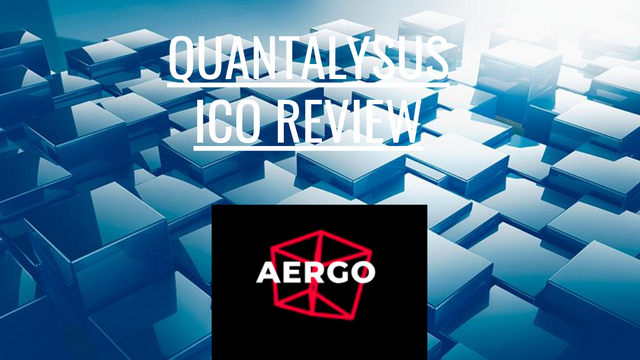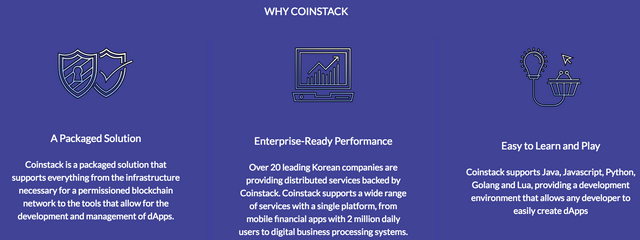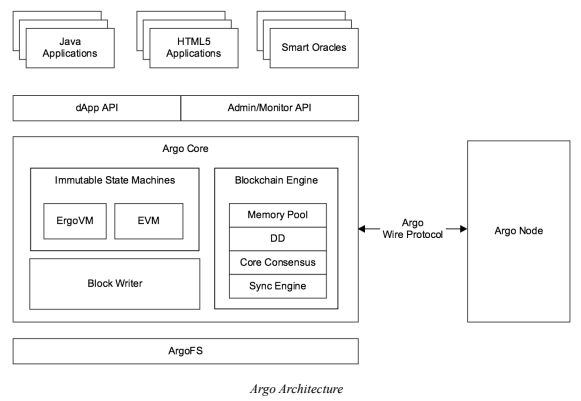ICO Review: Aergo

Aergo plans to develop not only a blockchain, but also a fully featured ecosystem to enable businesses and developers from any industry onchain. Knowing full well that IT departments are not yet up to speed on building decentralized applications, Aergo's ecosystem will feature a variety of technologies that look and feel familiar. Separating itself from many of the blockchains today, Aergo does not tout high throughput (measured by Transactions Per Second, TPS) as its defining feature. There are several optimizations laid out in its documentation enabling potentially higher throughput so I will call those out where appropriate throughout this review. Bringing businesses to the decentralized internet is Aergo's primary focus. Businesses are concerned about application uptime, low latency, data security, and privacy. Aergo plans to do just that with its ambitious roadmap.
Before jumping into specifics I should discuss Blocko and its relation to Aergo. Blocko is a well established enterprise blockchain provider from South Korea that recently emerged from FinTechLab APAC. Technology incubators such as TechStars have already produced Loom Network and Arweave so it’s likely more cryptocurrency projects will emerge from these incubators. Coinstack, its core Blockchain-as-a-Service product, lies at the heart of their new project. Based off of a modified Bitcoin blockchain and Ethereum’s Virtual Machine, Coinstack is currently in use with 20 or so live implementations. Coinstack worked well enough but Block realized there were two critical reasons why it needed to develop Aergo. The first was Coinstack reaching Bitcoin’s theoretical transaction limit. The second was that the Ethereum Virtual Machine (EVM), which Coinstack is built from, has many friction points with current enterprise architecture. Rather than repeat more of the same, Block decided to build a hybrid public-private solution. To date, Blocko has raised a total of $14M in two rounds of funding from Samsung Venture Investment (Samsung's VC group).
Here's a snapshot from Blocko's website.

Blocko will lend its Coinstack technology as a key partner to the Aergo Foundation, a non-profit set up to specifically foster the Aergo ecosystem. Instead of a fully decentralized blockchain such as Bitcoin, Aergo will feature a Delegated Proof-of-Stake consensus algorithm with "just enough" decentralized node operators to power the network. This approach to decentralization is not necessarily trying to erode centralized corporations, but rather to give businesses the option to diversity their technology stack to incorporate decentralized components. I've reviewed several other projects embracing bringing businesses onchain such as Ontology (multi-chain solution), Edenchain (dual permission and permissionless blockchain solution), and Aelf (sidechain for vertical use cases). For each of these projects, their end goals are the same: bring businesses onchain.
Pain points from their whitepaper
Aergo does well in its whitepaper to call out why businesses have yet to embrace blockchain. A few of the reasons are highlighted below.
- Hard forks cause instability and vulnerability to attacks (i.e. network replay, DDoS attacks). Reasons for hard forks include:
- Strong disagreements over protocol improvements
- Disincentive for developers to upgrade primary network when they can just fork and raise funds separately
- Major hack and one camp succeeds in rolling back transactions while other camp stays with the immutable argument (i.e. DAO hack)
- Price volatility leads to uncertainty in operational expenditures (opex) for business
- Highly agree
- Heterogenous technologies integrating together.
- I disagree this is a pain point blockchain will solve. Technologies have almost always and will likely continue to be a patchwork of technologies.
- Learning Solidity is not a great strategy as software development departments do not have the bandwidth to learn new languages. To do so they often turn to contractors.
- Disagree. Software developers are problem solvers by nature and can adapt to learn new languages as they are just tools to serve a need.
- Agree in the sense that Solidity is a young and relatively unproven language.
- Other languages common in software development have been tested by generations of applications. In the long run, Solidity will also fall in this camp but I think it's too early to say.
- Enterprises require stricter data protection than data encryption can provide
- Agree
Product Roadmap
- Testnet: Q4 2018
- Mainnet: Q1 2019
The Team
Foundation Council
- Roderik van der Graaf is Managing Partner and also an Aergo council member. His background: Founder of Lemniscap, an investment and advisory firm in the blockchain space; 7 years of private equity/venture capital at Caldera Pacific and KCP Capital; 13 years of equity derivatives trading at Deutsche Bank, HSBC, Rabobank, Bear Stearns, LIM Advisors and All Options; B.Eng. Aerospace Engineering (University of Hertfordshire) and MSc. in Information Technology (Queen Mary and Westfield College, University of London)
- Hun Young Park, Aergo CTO • Expertise in large scale and high performance software design • 12 years of experience in Relational DBMS and distributed solutions • Researched and developed various data platform areas and AI • KAIST, Computer Science. AI Lab, MS
- Phil Zamani, Aergo COO • Global VP Sales & Biz Dev. Internet Embedded Linux Appliances for Redhat Inc. • Global Head of Big Data & Cloud Biz Models at Santander • Senior VP of Cloud Biz Unit at Deutsche Telekom
- Jin Sok Lee, CEO, 10 years software developer experience at KH Hitel, S-Core and SK Planet
- Kyung Tae Lee, 12 years of experience in Relational DBMS and Query engine development, Graph database, Kangwon Univ. Computer and Communication Engineering
- Sung Jae Woo, 9 years of experience in Relational DBMS buffer cache and IO subsystem development • Expertise in Computational Physics • Korea Univ. Physics. PhD
- Yun Woo Park • 10 years of experience in Relational DBMS and Distributed Management System • Principal software researcher in database R&D • Korea Univ. Computer Science
- Pierre-Alain Ouvrard • Python, Solidity developer • Off-chain scaling and plasma researcher • INSA Lyon. Electrical Engineering
- Bernardino Ramos (no LinkedIn) • 19 years of experience on software development • Expertise on SQLite database replication • Creator of Binn, LiteReplica and LiteSync
- FBG Capital
- GBIC: Aelf, Iotex, Nebulas, Tomochain, Icon, Quantstamp, WePower
- Lemniscap
- Newly added since I first wrote my draft
- Rockaway Blockchain
- Dekrypt Capital
- Block Crafters Capital
Token Metrics
- Ticker: TBD
- Standard: Own token
- Hardcap: TBD
- Sale information
- Private sale ended
- Public sale: no information
- Total token supply: TBD
- Percentage of tokens for sale: TBD
- Token utility: used by the developers and businesses to create and use smart contracts
Features of Aergo
Argo’s architecture

Aergo Foundation
One thing I'm very glad to see is the formation of the Aergo Foundation. Similar to Ethereum, Neo, Qtum, Monero, and Dash; Aergo will create a non-profit organization dedicated to support and grow Aergo.
Aergo Chain
Aergo Chain is a decentralized hybrid public/private blockchain network. It contains a smart contract engine called AergoSQL to enable innovative business products and services. Aergo’s blockchain will feature the Git-like abilities to branch out and merge branches. In other blockchains, forks are considered undesirable effects. But in Aergo forks are a core feature which essentially enable version control.
Distributed Directories (DD) and Aergo Hub
Aergo Hub is the connecting fiber from Aergo Chain to decentralized applications (dApps). Smart contracts are stored within the Hub in either of two different distributed directories (DDs). The first is a public repository which is shared and open to others to leverage and innovate on. The second is a private repository for businesses seeking complete control, security, and privacy. Each of these DDs store the metadata of a dApp. The Distributed Directory Service (DDS) are managed by the DDs to provide information on users (clients) or admin. This allows the admins to provide the appropriate permissions within dApps to specific users.
DD is comparable to data dictionaries in databases, zookeeper for Hadoop, or etcd for CoreOS in its role and functionality. ~Aergo whitepaper
Aergo Marketplace
Partners can develop software to further support the ecosystem. These services are stored in the Aergo Hub and available to those who need them.
Delegated Proof of Stake Consensus
Similar to Eos, Steem, and Bitshares, Aergo will feature a DPoS consensus algorithm. Aergo aims for just enough decentralization with nodes likely to be managed by large enterprises. The benefits of DPoS have been debated openly and the prevailing benefits of DPoS include reduced energy expenditure, lower chances of hard forks, and economic incentives for honest nodes to slash malicious actors out of the network. For the first 2 million blocks the Aergo Foundation and Blocko will provide additional confirmation the network is running as intended.
Because DPOS operates under the assumption that block reorganizations can happen, it is an optimal algorithm for powering the underlying infrastructure of Argo. ~Aergo WhitepaperConfigurable Consensus
The default consensus is the DPoS consensus mentioned above. However, dApps may want to run a different consensus on their separate Distributed Directory (in essence its own blockchain). Two other consensus choices are available: RAFT (for development) and PBFT (for strict-ordering) are useful for developing and running different services.
Smart Contracts and Aergo SQL
Aergo will handle multiple VMs including Ethereum's VM (EVM) to support Solidity based smart contracts, Hyperledger Fabric Chainfode, and Aergo’s native plugin-based smart contracts with the AergoSQL language. The beauty behind Aergo SQL is the ability to interact with smart contracts in the same way SQL can retrieve, transform, and store data into databases. Many people, including non-developers, already know how to use SQL. This untapped pool of non-developers could potentially become fertile ground.
Isomorphic Smart Contracts
One last clever innovation with Aergo is its ability to run code (or make a request) in both the client and on the node, in traditional programming this is known as isomorphic application. In the image below one can see the Isomorphic Code running between the dApp/Smart Oracle interacting with the Node. Requests can move in both directins.
File Storage
Aergo will be launching AergoFS, originally based on Facebook’s Haystack technology, will store files that can be accessed via smart oracles or directly through dApps. Each DD stores metadata about storage files including physical location, hash value, and performance statistics.
Verdict
This project reminds me of how Onchain developed Ontology. We find Blocko creating Aergo, a blockchain ecosystem with smart contract version control capabilities, public and private repositories, privacy and a query derived language for smart contract control. Aergo’s investors primarily hail from Asia (FBG, GBIC, Lemniscap) but it will need to raise its profile in Western markets. Ideally it would build communities for developers to familiarize themselves with Aergo SQL and Aergo’s compatibility with Solidity. Real world examples of Coinstack in operation are already live so educating companies to build on Aergo should be an achievable task.
Aergo is likely to be one of the more exciting projects for the second half of 2018. Its architecture is designed to solve real world problems by adopting Solidity developers and newcomers alike. The ability to provide permissions and privacy throughout its design also bodes well for real world enterprise adoption. Depending on the project’s token metrics, Aergo is likely to be my top selection for ICOs in 2018.
Sources:
Quantalysus publishes blockchain research and analysis for the crypto community. Please follow on Twitter, Steem (please follow and upvote if you can – thanks!), Telegram channel (New!), and Medium to stay up to date.
My ICO rankings (anything above a 60 by the way I would seriously considering investing in… call me a harsh grader)
If you learned something:
- Please consider donating to keep this website up and running
- Earn Aelf tokens by following them on Twitter (my referral link)
- Follow me on Steem (@quantalysus). I appreciate upvotes!
- Follow me on Twitter (@CryptoQuantalys)
- Education Series: Why we need Bitcoin
- Education Series: The History of Bitcoin
- Education Series: Mining Hardware
- Education Series: How do ICOs work
- Education Series: Hash Functions
- Education Series: Sybil Attacks
- Education Series: Airdrops
- Education Series: Byzantine General’s Problem
- Education Series: Regulation A and D
- ICO Review: Origo Network
- ICO Review: Choon
- ICO Review: Emotiq
- ICO Review: Bit.Game
- ICO Review: ANKR Network
- ICO Review: COTI
- ICO Review: Taraxa (Part 1)
- ICO Review: Arweave
- ICO Review: Lightstreams
- ICO Review: Hypernet
- ICO Review: Hero Node
- ICO Review: Solana
- ICO Review: Phantasma
- ICO Review: Holochain
- ICO Review: Edenchain
- ICO Review: Quarkchain
- ICO Review: DAOStack
- ICO Review: Alchemint
- ICO Review: Loki Network
- Coin Review: Nexo
- Coin Review: Ontology
- Coin Review: Aelf
- Coin Review: Mithril
- Coin Review: Qtum
- Coin Review: Waves
- Coin Review: Banyan Network (BBN)
- Opinion: Token economics
- Opinion: ICO paradox
- Opinion: Why we love Steem
- Analysis: Starkware Industries
- Analysis: If Steem were a country, it would be the most unequal society
Interesting project and a well written review. I'm definitely going to check out your other reviews and give you a follow!
Thanks for reading!
well written ma man
Thanks, much appreciated!
Great review which is very helpful in crypto market ,very interesting project providing by you for online earning .thanks for sharing@quantalysus
Nicely done
thank you for sharing this is very helpful for us to know a lot more info about aergo and also, i saw a post on the exchange they are listed and that exchange is having a trading competition maybe you guys wanted to check it out. https://www.kucoin.com/#/rank/AERGO